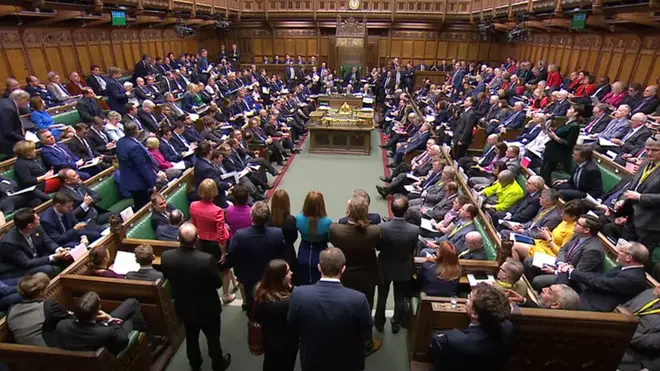
Nick Ferrari 7am - 10am
1 April 2019, 22:06 | Updated: 1 April 2019, 22:32

MPs have once again voted against a number of proposed alternative options to Theresa May’s Brexit plan.
Following another round of “indicative votes”, none of the four options managed to secure a majority.
Proposals for a softer Brexit and a second referendum were amongst the amendments rejected.
Last week, MPs rejected eight possible paths forward to break the deadlock in Parliament.
Theresa May will meet her Cabinet on Tuesday to try and forge a way forward.
Britain is currently due to leave the EU on April 12th.
Following the results ,MP Nick Boles announced he could no longer sit with the Conservative party after his proposal for a "Common Market 2.0" failed to win a clear backing.
(C) Customs Union - Yes 273 to No 276
Put forward by the father of the house Ken Clarke, the proposal is for a commitment to negotiate a "permanent and comprehensive UK-wide customs union with the EU" at minimum.
(D) Common Market 2.0 Yes 261 to No 282
The motion for UK membership of the European Free Trade Association (EFTA) and European Economic Area (EEA) would allow continued participation in the single market and a "comprehensive customs arrangement" with the EU.
(E) Confirmatory public vote Yes 280 to No 292
The motion that says the government cannot implement or ratify the withdrawal agreement and the political declaration unless and until it has been put back to the people and approved in a second referendum.
(G) Parliamentary Supremacy Yes 191 to No 292
Moved by SNP MPs, this motion has three parts.Firstly, if a withdrawal agreement can not be passed, it calls for the government to seek a further extension to Article 50.
Secondly, if an extension is not possible, then the plan would turn to MPs to decide between no-deal or revoking Article 50 altogether.
And if MPs reject no-deal at this point, then the UK would have to stop Brexit and an inquiry will be held to determine what kind of future relationship with the EU would likely to have the most support in the UK.